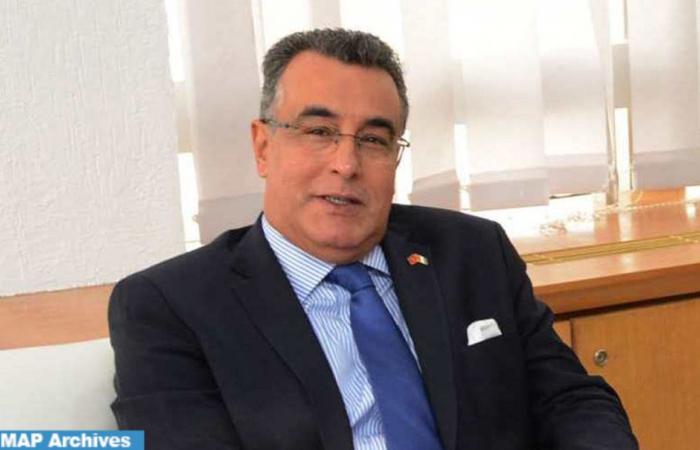
Tuesday, October 15, 2024 at 11:55 p.m.
Abidjan – Morocco’s pilot experience and the major steps taken on the path to establishing sustainable cities and promoting the circular economy were highlighted on Tuesday in Abidjan on the occasion of the second edition of the international Circular Economy forum (ECO-CIR 2024).
“Under the visionary and decisive leadership of His Majesty King Mohammed VI, Morocco has been actively engaged for years in the transition towards sustainable cities and the circular economy, integrating strategies that aim to respond to contemporary environmental and social challenges ”, affirmed the ambassador of the Kingdom of Morocco to Côte d’Ivoire Abdelmalek Kettani, who took part in a high-level panel organized on this occasion, alongside members of the Ivorian government and the ambassador of the European Union in Ivory Coast, Ms. Fransesca Di Mauro.
This approach, explains Mr. Kettani, is motivated by the fact that the Kingdom faces major environmental challenges, in particular water shortage, due to climate change and insufficient rainfall for years and the management waste, noting that the imperative of a transition towards sustainable cities has become a political priority for Morocco, integrating the Sustainable Development Goals (SDGs) into its public policies, in particular SDG 11, which aims to make inclusive, safe, resilient and sustainable cities.
In this sense, he reviewed a series of initiatives and projects launched by Morocco in the management of water resources, among others, the National Drinking Water Supply and Irrigation Program (2020-2027). ) aimed at accelerating investments in the water sector, improving governance, and integrating unconventional water resources, or even projects linked to seawater desalination, such as of the Casablanca factory, the largest in Africa and which uses renewable energies.
The effort also focused on the implementation of the National Liquid Sanitation and Wastewater Purification Program (PNA) aimed at improving the treatment of wastewater and reducing their impact on the environment, said M . Kettani citing, as an example, a series of specific projects, such as the depollution of the Sebou basin, launched to treat wastewater before their reuse.
Morocco has also implemented ambitious programs in terms of waste management and encouraging recycling, continued Mr. Kettani, recalling that in 2020, the Kingdom generated more than 7 million tonnes of waste , with an urgent need to adopt circular practices to manage this situation.
And to continue that several pilot cities, like Rabat, Casablanca, Agadir, Fez, Tangier and Marrakech are implementing circular economy practices within the framework of waste management and urban sustainability.
On another note, he underlined the relevance of the theme of this conclave, namely: “sustainable cities and technologies”, given its topicality and the fact that it is essential at this pivotal period in the history of economic and environmental evolution of today’s world.
ECO-CIR 2024 is a joint initiative of the Autonomous District of Abidjan, the National Polytechnic Institute Félix Houphouët-Boigny (INPHB) of Yamoussoukro, the Institute of the Circular Economy of Abidjan (IECA) and Challenge Technology.





